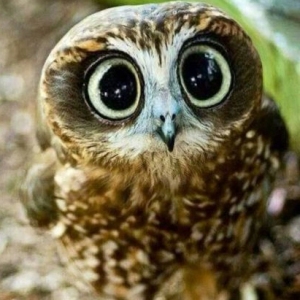I have a home and family in Asia, another place I call home in what is technically still Europe, two nieces, one nephew and a brother in North America and some great memories in South America, though so far nothing in Antarctica and no interest in going there. I thus appear to be very much of this world (though not of Antarctica) but in fact I am an alien. One day I will be discovered and sent back to my home planet, the beautiful, bright red Awkwardia in the swirling Antisocialis Galaxy far, far away from human warmth and irritation, where I will inhabit a cave in one flat, barren island and feel quite at home and at peace with my surroundings mainly because I will not have the slightest interest in them.
It is immensely difficult to achieve that level of disinterest-induced serenity on this adopted blue planet of mine. It is a very strange, conflict-ridden place. I like parts of it (usually parts where no human interaction is available) but overall its inhabitants operate within a system that consumes it, quite literally. After almost half a century here, I consider myself as much an earthling as anyone I have known in this corner of the universe. Our problem here is that some of us always want more. We have to have all the best food, wear the best clothes, be/look the fittest, go to the best schools, have the greatest time, get the best jobs, earn the most money… Some of us then go on to reproduce little earthlings who also must have all the best food, wear the best clothes, be/look the fittest, go to the best schools, have the greatest time, get the best jobs, earn the most money, and then produce their own little earthlings of the same kind… It’s a never-ending cycle. Some of us decide that this is too tiring, or unethical, or stupid, and that we only want ourselves and our little earthlings to be conscientious, responsible and happy and couldn’t care less about all the other things, but then we run the risk of watching our little earthlings get eaten up by the earthlings of the former kind. The worst case scenario is when an earthling of the former kind has offspring of the latter kind (for some reason it’s not too bad vice versa). Then happiness is a long-lost planet for everyone concerned.
Being an alien does not make me immune to ailments that are inflicted by this exhausting mode of existence. Like a proper earthling I have a mid-life crisis. In my case this entails asking myself why on earth I came to Earth, down from barren but peaceful Awkwardia, and assumed a life of good food, clothes, gym, schools, a job and – well, not much money but that’s OK as long as there is success. Time to go back home, before populist, power-hungry narcissists buy their ways up through all the political hierarchies and get themselves elected by millions of earthlings everywhere on this planet, pretending to criticize the earthlings of one kind but actually perpetuating their ways. More importantly, before they start turning against each other. Fighting. Killing. Destroying. I miss the bright red deserts of my planet where none of this meant anything. Pure, lonely bliss it was.


